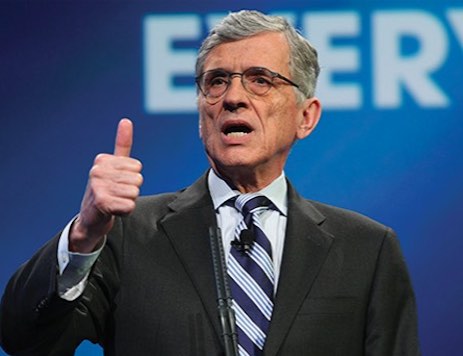FCC: Open Internet Order Was Pro-Small Business

The smarter way to stay on top of broadcasting and cable industry. Sign up below
You are now subscribed
Your newsletter sign-up was successful
Tom Wheeler's FCC says it has created "unprecedented opportunities for new and diverse media voices to find audiences," primarily through Open Internet policies like Title II reclassification of ISPs.
That is according to the triennial report to Congress on ways it has limited the barriers to entry into the communications business by entrepreneurs and small businesses.
The FCC was asked by Congress to give a status report every three years and to make recommendations for legislative changes that would further the goals of "1) diversity of media voices, 2) vigorous economic competition, 3) technological advancement, and 4) promotion of the public convenience and necessity."
One of the changes the FCC is looking for, while Congress is asking, is more time to investigate complaints, saying that the current one-year statute of limitations should be tripled to three years, arguing that would strengthen its ability to enforce its rules, "including its activities to protect small businesses."
While it says it has acted on numerous fronts, the most important has been "the development of an open, interconnected broadband ecosystem that has given small firms access to marketing and production capabilities that were once available only to large and established firms."
"Our Open Internet Order protects entrepreneurs and small businesses’ free and open access to the Internet, enabling innovation without permission," said FCC chairman Tom Wheeler in a statement about the report. "We all know the stories of young entrepreneurs who used the open Internet to start companies in dorm-rooms and garages that would eventually topple incumbents to become world-leading companies. But fast, fair, and open networks don’t just offer a platform to build web-based companies, they also help small brick-and-mortar businesses grow."
The report argues that high-speed access has "radically" lowered small business entry costs and has also "taken action to create new opportunities for small companies to acquire crucial inputs such as wireless spectrum and broadcast licenses" and has "reduced paperwork requirements for small firms."
The smarter way to stay on top of broadcasting and cable industry. Sign up below
The report also points to the 2015 reforms of its designated entity rules and its decision to reserve some spectrum in the broadcast incentive auction for non-nationwide carriers.
On the broadcast side, the commission points to its amended rules on joints sales agreements, saying that was an effort to "to stop larger broadcast companies from circumventing the FCC’s rules that protect competition and diversity in local television markets."
The FCC's proposed legislative fixes include "preferential tax treatment for transactions involving small businesses; steps to speed up the deployment of broadband to unserved communities; supporting science, technology, engineering, and mathematics (STEM) education; and promoting small firms’ access to and innovative use of spectrum."
The report was released Oct. 27.
Republican commissioners Ajit Pai and Michael O'Rielly had a less rosy view of FCC efforts. Both dissented in part from the report. Pai wasn't buying Title II reclassification as a boon to small business, for one. "In this report, the Commission touts many actions that I agree have been helpful to small businesses, including AM radio revitalization and accelerating wireless infrastructure deployment," he said. "On the other hand, it also discusses many initiatives that I believe have harmed, not helped, small businesses. For example, the Commission’s Title II Order disproportionately burdens smaller broadband providers that do not have the same resources as their larger competitors to comply with additional regulation. As such, I fail to see how Title II regulation eliminated a barrier to entry into the broadband marketplace."
"Congress certainly did not expect that the report would be considered as just another opportunity to proselytize in favor of the current Commission’s partisan agenda," said O'Rielly. "[N]et neutrality receives top billing on this marquee, to the wonderment of those of us observing the steady stream of new and ever more burdensome requirements it has unleashed on Internet Service Providers, which are, of course, especially burdensome to small providers."
"Overall, this report is flawed and extremely late. I approve its issuance, as required under the law, approve instances where it actually acknowledges and addresses legitimate and applicable market entry barriers for small businesses, and reject the rest," he said.
Contributing editor John Eggerton has been an editor and/or writer on media regulation, legislation and policy for over four decades, including covering the FCC, FTC, Congress, the major media trade associations, and the federal courts. In addition to Multichannel News and Broadcasting + Cable, his work has appeared in Radio World, TV Technology, TV Fax, This Week in Consumer Electronics, Variety and the Encyclopedia Britannica.

